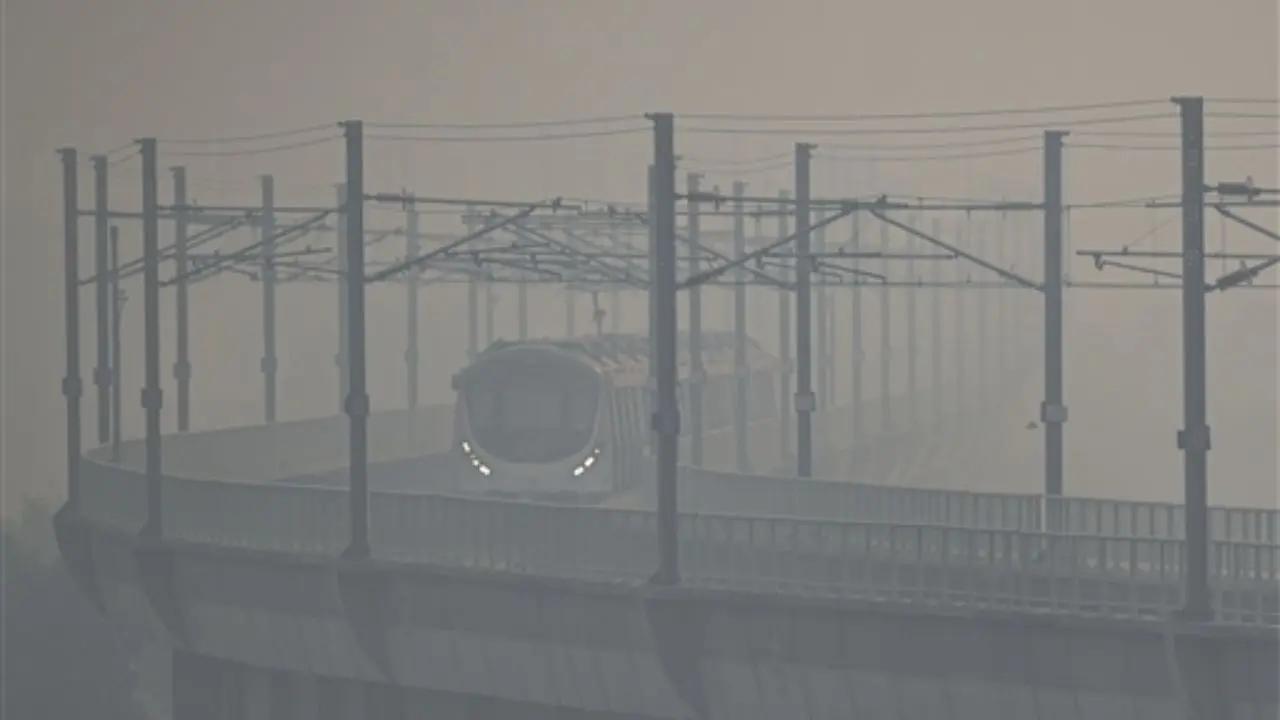Four labourers from Bihar died of asphyxiation while cleaning a factory's septic tank here in Kamleshwar village in Surat on Tuesday

Representative Image
The poisonous haze blanketing Delhi thickened on Wednesday with the air quality standing close to the "severe" category amid unfavourable meteorological conditions.
ADVERTISEMENT
The national capital's Air Quality Index (AQI) stood at 392 at 8 am. The 24-hour average AQI, recorded at 4 pm every day, was 397 on Tuesday. It was 358 on Monday and 218 on Sunday.
Air pollution levels entered the severe category (AQI above 400) at many places within the city, including ITO (427), RK Puram (422), Punjabi Bagh (432), IGI Airport (404), Dwarka (416), Patparganj (417), Sonia Vihar (413), Rohini (421), Nehru Nagar (434) and Anand Vihar (430).
Neighbouring Ghaziabad (362), Gurugram (322), Greater Noida (312), Noida (364) and Faridabad (369) also recorded very poor air quality.
An AQI between zero and 50 is considered 'good', 51 and 100 'satisfactory', 101 and 200 'moderate', 201 and 300 'poor', 301 and 400 'very poor', 401 and 450 'severe' and above 450 'severe plus'.
According to IQAir, a Swiss company that specialises in air quality monitoring, Delhi was the most polluted city in the world on Tuesday, followed by Dhaka, Lahore and Mumbai.
According to a system developed by the Pune-based Indian Institute of Tropical Meteorology to identify the contribution of different pollution sources, stubble-burning accounted for 12 per cent of the air pollution in the capital on Tuesday. It is likely to be 14 per cent on Wednesday and six per cent on Thursday.
An official of the Commission for Air Quality Management (CAQM) said stringent measures, including a ban on construction work and the entry of polluting trucks in the national capital, under the final stage of the central government's air pollution control plan called the Graded Response Action Plan (GRAP) will continue until further orders.
"Stubble burning incidents are rising again and the meteorological conditions are not favourable (for dispersion of pollutants). We will review the situation and act accordingly," the official added.
Doctors say breathing in the polluted air of Delhi is equivalent to the harmful effects of smoking approximately 10 cigarettes a day.
Prolonged exposure to high levels of pollution can cause or exacerbate respiratory problems such as asthma, bronchitis and chronic obstructive pulmonary disease (COPD) and dramatically raise the risk of cardiovascular disease, they said.
Unfavourable meteorological conditions, combined with vehicular emissions, paddy-straw burning, firecrackers and other local pollution sources, contribute to hazardous air quality levels in Delhi-NCR during winters.
According to a Delhi Pollution Control Committee (DPCC) analysis, the city experiences peak pollution from November 1 to 15, when the number of stubble-burning incidents in Punjab and Haryana increases. Delhi's air quality ranks among the worst in the world's capital cities.
According to a report compiled by the Energy Policy Institute at the University of Chicago (EPIC) in August, air pollution is shortening lives by almost 12 years in Delhi.
This story has been sourced from a third party syndicated feed, agencies. Mid-day accepts no responsibility or liability for its dependability, trustworthiness, reliability and data of the text. Mid-day management/mid-day.com reserves the sole right to alter, delete or remove (without notice) the content in its absolute discretion for any reason whatsoever
 Subscribe today by clicking the link and stay updated with the latest news!" Click here!
Subscribe today by clicking the link and stay updated with the latest news!" Click here!







